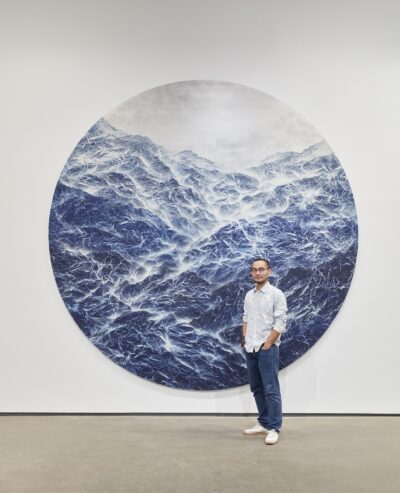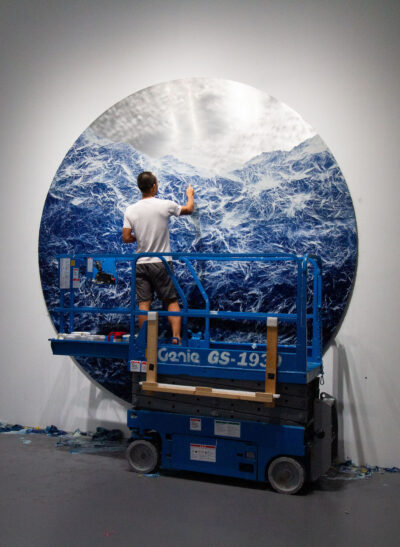
Artnet: Chinese Landscape Painting With Video, Light, and a Big Dose of Chance
Artnet專訪: 由影像、光與隨機性組成的水墨畫
Wu Chi-Tsung Is Drawing Global Notice for Revamping Chinese Landscape Painting With Video, Light, and a Big Dose of Chance The Taiwanese artist hopes his journey to the international stage might be an inspiration for other young artists from Asia. When the artist Wu Chi-Tsung decided to take a leap of faith and seek representation outside his native Taiwan five years ago, he might have only hoped that it was the start of a global adventure. His travels have since taken him to Hong Kong, Berlin and now the U.S., where the 40-year-old has his first solo show this week at Sean Kelly Gallery in New York. Wu sees the exhibition as a major breakthrough not only for his own career but also, possibly, for other Asian artists of his generation. “I really hope this journey, one that has been full of trial and error in finding a way out, can inspire more young artists to go out to find opportunities, to see this big world,” Wu told Artnet News, speaking on a video call from the New York gallery where he was putting the final touches on his exhibition “Wu Chi-Tsung: jing-atmospheres“, opening on November 4. The embrace of the unknown not only forms the basis of Wu’s philosophy towards his life, but his artistic practice as well. From the production process to the final outcome, his work is often full of surprises, even to the artist himself. Take his well-known Cyano-Collage series, for example. They might look like traditional Chinese ink landscape paintings from afar, but on closer inspection, the works are an amazing illusion created using cyanotypes on Xuan paper, which is treated with a photosensitive coating and then exposed in the sunlight. The paper is crumpled, forming wrinkles and cracks. Each piece is an experiment, and when they are all put together, they form a collaged image that might resemble a mountain, or sometimes glaciers, or stormy seas. “Most artists have a strong ego. We try to control our work,” Wu said. “But the more you try to control it, the more likely you lose the possibility. Sometimes, we should…
READ MORE
